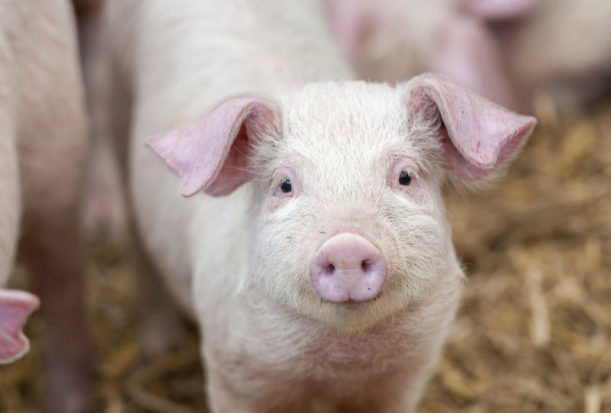Smithfield Foods, the world’s largest pork producer, has made more progress away from cruel gestation crates. The company announced that it has converted 87 percent of its sow housing to group housing systems, and will be at 100 percent by the end of 2017.
A decade and a half ago, there wasn’t a single U.S. state with laws protecting animals from extreme confinement practices on factory farms. About that time, we launched a campaign to target one of the worst abuses – the confinement of mother pigs in coffin-like enclosures for years on end. The two-foot by seven-foot cages are so cramped that the 300- or 400-pound animals cannot even turn around. Somehow, within the world of factory farming, where animals are treated like nothing more than commodities, that became both routine and acceptable.

The HSUS successfully campaigned to ban gestation crates in California, Colorado, Maine, Michigan, Ohio, and Rhode Island. Most recently, voters in Massachusetts also banned gestation crates when they passed our Question 3 ballot initiative. Photo by iStockphoto
We aimed to change that, and Florida was our first major battleground. In 2002, we helped pass a ballot measure making the Sunshine State the first to ban gestation crates—or any factory farming practice. Four years later, we qualified an anti-gestation-crate ballot initiative in Arizona, and it passed by an even wider margin.
Just three months after Arizona’s ballot passage, Smithfield announced it would phase out gestation crates at its operations, replacing them with group housing, a system that doesn’t involve such extreme confinement, and complete the transition by the end of 2017.
We haven’t been sitting around watching the sands pour through the hour glass, in the meantime. We worked to expedite change for the better throughout the entire animal agricultural economy. We successfully campaigned to ban gestation crates in California, Colorado, Maine, Michigan, Ohio, and Rhode Island. Most recently, voters in Massachusetts also banned gestation crates (among other confinement practices) when they passed our Question 3 ballot initiative with 78 percent favoring it.
At the same time, we’ve persuaded more pork buyers to change their purchasing standards. Within the last few years, we’ve worked with dozens of the largest pork buyers, from Albertson’s to McDonald’s, to announce that they will stop buying pork produced using gestation crates.
But we also want producers to change, and today, Smithfield has made good on honoring its pledge from a decade ago. And contrary to claims from industry skeptics, Smithfield reports that its transition has had no negative effects on its sows’ productivity.
But for all the progress, it’s important to note that while Smithfield is moving toward group housing, it’s still confining sows in cramped crates for several weeks at the beginning of their pregnancies. This is cruel, and if sows must be individually housed for a time period, there’s no reason to give them such a miserly amount of space that they can’t even turn around for weeks on end. It’s also bad business: many states prohibit that type of confinement (like Massachusetts, which also prohibits the sale of pork from such systems, starting in a few years), and dozens of the largest food companies are demanding the total elimination of gestation crates.
Still, we welcome Smithfield’s progress, and encourage the company — and the rest of the pork industry — to continue what appears to be an inevitable movement away from immobilizing confinement of sentient creatures whose most basic biological and behavioral needs are frustrated by such systems. The big retailers are eliminating all gestation crates, most of them by 2022, and an entire state (Massachusetts) has said no pork produced from gestation crates can be sold there by 2022.
Will the pork industry be ready? I believe Smithfield will. And I hope others start acting now to ensure they will be too.
The post Breaking news: Smithfield will complete transition to group housing for sows by end of 2017 appeared first on A Humane Nation.
Enviroshop is maintained by dedicated NetSys Interactive Inc. owners & employees who generously contribute their time to maintenance & editing, web design, custom programming, & website hosting for Enviroshop.
